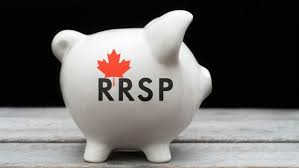 Buying a house is a difficult process. You must consider location, age, property taxes, and a whole host of other factors that everyone has an opinion on. You also have to verify the neighbors don’t look like they’re supporting characters in a horror movie, and ensure the property isn’t cursed. The amount of advice available out there is endless for selecting a home, but what about when you have found one?
Buying a house is a difficult process. You must consider location, age, property taxes, and a whole host of other factors that everyone has an opinion on. You also have to verify the neighbors don’t look like they’re supporting characters in a horror movie, and ensure the property isn’t cursed. The amount of advice available out there is endless for selecting a home, but what about when you have found one?
Unless you are a lottery winner or have been saving decades for this moment, odds are that you are going to need a mortgage to buy your home. You will hear terms like “mortgage insurance” and “debt-to-income” and all other sorts of tedious phrases when you look up the mortgage process. These items are all relevant, and accurate, but rather than read through all of that, why not just know what you cannot do if you want to get your mortgage?
I work in the mortgage industry and have done so for quite some time. I have worked with new homebuyers, small businesses, and commercial conglomerates. While banks are typically viewed as a faceless, malevolent entity, when it comes to buying your home, we are the closest thing you will have to a friend. The more favorable the purchase is to you, the more likely you will qualify for your mortgage and thus the more likely we are to get your business. The seller wants to get the most out of you that they can. The realtors want a commission that comes out of your pocket. We just want you to get your house.
With that said, here are some items I see on a weekly basis that you must not do if you want an easy process:
- Do NOT open new credit cards to “improve” your credit before applying for a mortgage:
We admire ingenuity, but a little bit of knowledge can be quite dangerous. Advice will say that having more credit with lower balances will improve your credit score. To an extent, this is true. Unfortunately, credit reports tend to be a month or two behind reality. We are not going to see your well-designed credit profile: we are going to see a ton of applications for credit with no explanation.
The mortgage industry is perfect for people like me because we are paid to be what we already are: cynical and presuming the worst. Those credit cards will be interpreted as a desperate need for cash rather than a credit-building exercise. You will wind up going through an interrogation before you are approved, and you will actually lose points on your credit report due to all the new applications.
- Upgrading to a luxury car in the middle of your mortgage – please don’t.
This sounds like common sense. That’s because it is – yet we see this once a week at a minimum. So you have your mortgage pre-approved and you just have to get documents over to the bank before being OK to close on your new house. You ask the bank if we are going to look at your credit report again and we tell you no. Good to go, right? Off to BMW to sign on for a $800 monthly payment. We will see that. While we are not going to run your credit over and over again, most banks pay for a monitoring service during your mortgage process. Any time someone else looks into your credit, we’re notified. Any new loan will be caught unless you luck out with a really bad employee. Just wait the month until after you close on the home if you really need that new Tesla. Once you have the mortgage we can’t stop you.
Now if the transmission goes on your old car and you need a new one, there is not much you can do about it. Try to keep the payment on the new car the same or lower than the old one, and make sure to let your bank know.
- Do NOT assume a new job is OK because it pays more.
This one is tricky. If you made $60,000 a year when you applied, and a new employer offered you $72,000, easy call right? If you qualified at the lower number, you must qualify at the higher one as well.
Unfortunately, that is not necessarily true. If your new job is half commission, half wages, we may not be able to count the commission portion. Now you are making $24,000 less from the bank’s point of view. Your old job may have included bonuses that we were counting towards your income that we cannot on the new one. The new job may be as an “independent contractor” rather than an employee, in which case we may not be able to count it all. If you’re switching fields, a strict bank may decide your income isn’t “stable” enough (We don’t do that but some do).
When in doubt, check with your bank before accepting. It may be the new job is worth walking away from the mortgage for now, but check your options before assuming we’re as excited as you are.
- Do NOT sign a contract that includes a down payment that you do not currently have.
Now this really sounds like common sense, but this is actually the most common problem I see on a day-to-day basis. Say you are buying a home that is under construction in a new development you really like. The schools look great, the neighborhood looks like Leave it To Beaver and the home plan has those granite countertops you ranked as a top priority. You have already determined you can afford a $280,000 mortgage, so you need to put $40,000 down on the house. Thing about that is, right now you only have $25,000.
The home’s not going to be finished for four months, so you break out the calculator, put on the accountant’s green visor and determine you can save $4,000 month for four months. When the home’s done you’ll have $41,000 – more than enough.
The problem with this is, the same pesky little life issues that prevented you from having the $40,000 in the first place are still around. Car’s transmission goes. Unexpected medical bills. Flat tires. All the things that lead to low-dosage Xanax subscriptions in our day-to-day lives will continue while your home is being built. Now, when the home is finished, if you don’t have that $40,000, you’re going to lose whatever you put down on the house, plus the fees from appraisers, the bank, etc.
- Avoid moving large sums of money around during the application.
Bank employees are generally not detectives (though some in the fraud department actually are), but they are trained to look for money laundering and hidden loans/obligations. Large deposits could be indicative of either and are sure to prompt further questions. Odds are you can address them and this won’t preclude you from a mortgage, but it will make the process much more difficult.
Buying a home is the largest transaction you are likely to conduct, so it is reasonable to assume you may need to move some funds around. Try to get this squared away while you are still looking for the home, however. Your bank will typically ask for the most recent one- or two-month’s bank statements with your application. So if you moved everything where it needs to be a few months in advance, the bank won’t see those transactions and won’t have questions.
If you have $15,000 under your mattress because Grandma Nucci said that was the safest place, please deposit it before you apply. If the bank asks where $15,000 comes from and your answer is “I found it”, you may have an issue with approval.
- Do NOT assume that you and the bank are on the same page/have the same information.
This one cuts both ways but may be the most important. The problems with the Jenga house that we call a financial system are too numerous to get into here, but chief among them is the credit reporting system. The credit bureaus, collectively, are similar to a combination of your laziest relative and least accurate co-worker. They get to things when they feel like it, and when they finally do, the information is past-dated or outright inaccurate.
Unfortunately, unless you provide direct evidence to the contrary, your bank is going to rely on these reports when they review your application. Your credit cards may all have no balance, but your bank may be looking at a report that says you have hundreds of dollars in monthly payments on the same cards. You paid off your car loan four months ago – they show you still have one at $450 a month. The list is endless. The amount of times I’ve told someone they don’t qualify for a mortgage because they already have one, only to find out it was paid off months/years ago, is beyond my ability to count.
If you have paid anything off recently or lowered your balances, make sure the bank knows. If you have been declined and you cannot wrap your head around the reason, ask. Banks are required to give a reason for your decline, and if it does not add up to what you know, send your updated information and ask for a reconsideration.
There are plenty of other ways to make the process a pain but avoiding the above should go a long way toward getting you into that totally-not-haunted house sooner rather than later.
About the Author
Peter Shanosky has worked in the mortgage field for 10 years in both commercial and residential mortgages. His primary background is with non-profits assisting small business owners in obtaining financing and writing business plans. In his spare time, he is a content writer for several websites, specializing in personal finance and banking.




No Comments